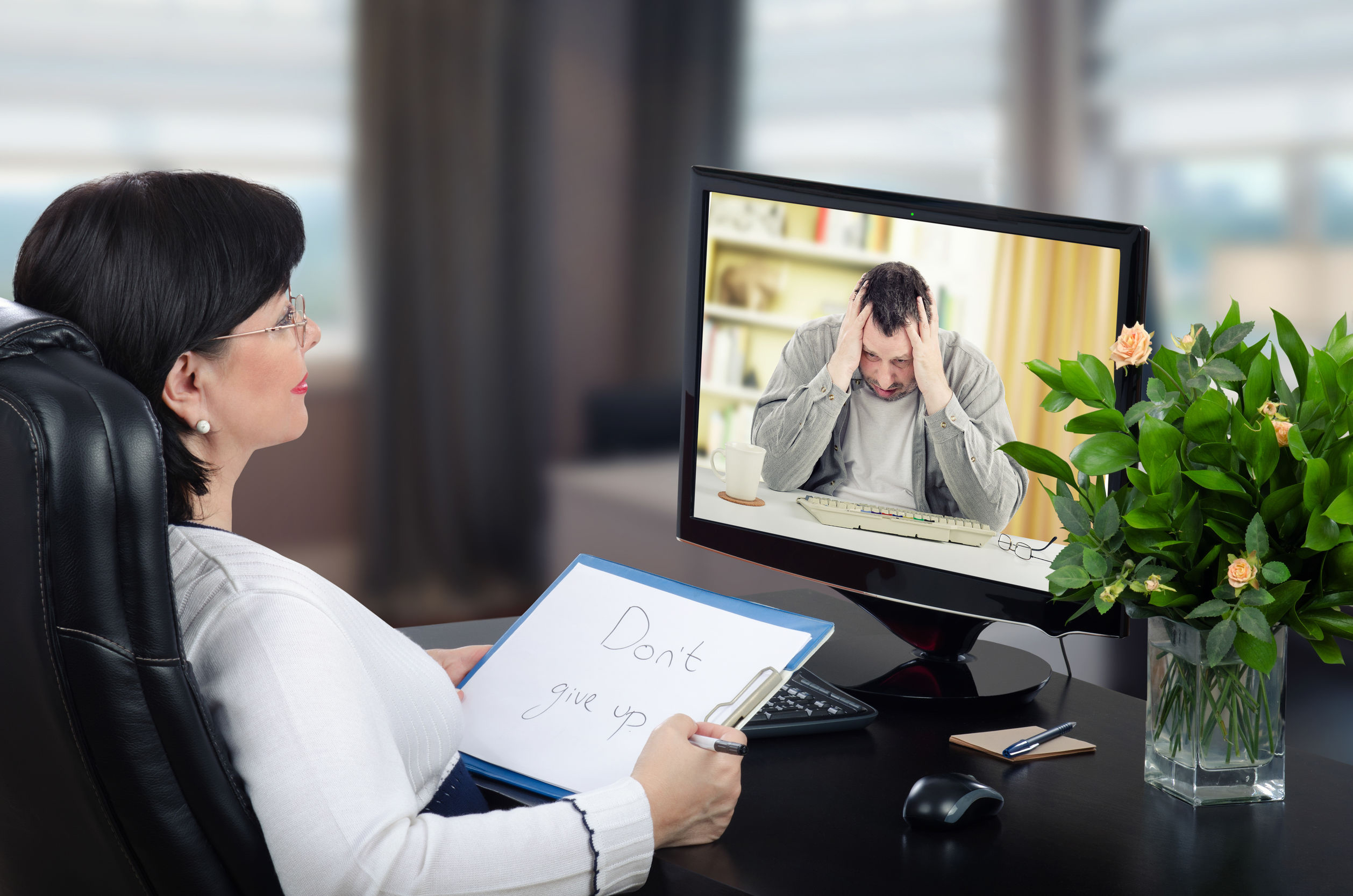Teletherapy: A safe, easy, and effective solution for mental health services during the COVID-19 outbreak.
The Coronavirus (COVID-19) pandemic has significantly increased stress in all of our lives, and is particularly problematic for those already suffering from anxiety, and depressive illness. At the same time, shelter-in-place orders, designed to stop the spread of COVID-19 have resulted in the suspension of traditional face-to-face therapies. Mental health providers like Cashman Center are turning to teletherapy as a safe, easy, and effective delivery of mental health services in these difficult times.
The Perfect Storm
Health worries, financial worries, isolation, and the disruption of daily routines – in the midst of the COVID-19 pandemic, these significant issues are now disrupting the lives of millions as we each do our best to cope with the new realities facing us. The impact of these new stresses range from being manageable for some, to severely disruptive for others. For those already battling anxiety and depressive illness, these new complications make an already bad situation much worse.
The Impact of Infectious Disease Outbreaks on Mental Health
According to the Centers for Disease Control and Prevention (CDC)*, the added stress during an
infectious disease outbreak can include:
- Fear and worry about one’s own health
- Fear and worry about the health of loved ones
- Changes in sleep or eating patterns
- Difficulty sleeping or concentrating
- Worsening of chronic health problems
- Worsening of mental health conditions
- Increased use of alcohol, tobacco, or other drugs
Additionally, the shelter-in-place orders create additional complications, including suspension of
employment, financial concerns, isolation, and the disruption of regular routines. Those likely to be most affected by stress during the COVID-19 crisis include the elderly, those with chronic diseases, children and teens, front-line people still working during the shelter-in-place orders, and those with mental
health conditions including problems with substance use.
Teletherapy – A Necessary Modern Approach to Mental Health Therapy
Another consequence of the shelter-in-place orders has been the suspension of face-to-face therapy sessions. A good alternative to these in-person sessions is teletherapy. In 2015, Cashman Center and other mental health providers adopted the use of teletherapy as it became legalized and covered by insurance as part of the Minnesota Telemedicine Act. The systems that were put into place that year resulted in safe, secure, and effective methods for conducting therapy sessions via the internet.
Teletherapy has a long history. It was first used by the Nebraska Psychiatric Institute back in 1959. It was slow to be adopted however, due to government restrictions and a lack of coverage for the services from insurance companies. What is new is the critical need for such services, caused by COVID-19. Fueled by shelter in place and the resulting suspension of face-to-face appointments, the Federal government and state governments have been quick to embrace teletherapy and telemedicine in general as a very important service whose time has come.
“Teletherapy is having an explosion,” said Dr. Ken Duckworth, medical director of the National Alliance on Mental Illness, or NAMI. “And it’s quite remarkable to see how fast it all happened.”
On March 17, the Trump Administration significantly expanded Medicare telehealth coverage, hoping it would help slow the spike in COVID-19 cases and deaths. The aftermath of the decision has been a significant increase in adopting telemedicine as mainstream. According to Dr. Jeffrey Lieberman, chair of the Psychiatry Department at Columbia University College of Physicians and Surgeons, teletherapy is “ideally suited to providing mental health care under the current circumstances. And it’s being used now more than ever in history.”
What is teletherapy like?
While teletherapy is not the same as a face to face session with a therapist, it is as effective and feels just as safe. Many clients enjoy the convenience of being able to see a therapist virtually, in the comfort of their
own home.
The primary application that Cashman Center uses for teletherapy sessions is Doxy.me, a Web-based HIPAA, GDPR, & PHIPA -compliant telemedicine system, designed specifically for use by healthcare professionals. The appointment process is simple and straightforward:
Schedule – Simply schedule an appointment by calling Cashman Center at 952-224-8990. During this call, clients are given a special link to use when it is time of the appointment…no download required!
Session – At the time of the appointment, visit the special link received during scheduling**. The therapist will start the video session automatically when they are ready. In Doxy.me, there is even a box that pops up for “checking in.”
Payment – Payment of a bill or copay can be made by calling the Cashman Center billing office, or online at the Cashman Center website. Additionally, payments can be made during the therapist session.
The reality of it is, for the time being, teletherapy will be the only form of mental health outpatient care. While some may initially be wary of this form of care, we typically hear great feedback after the client’s first session. At times teletherapy provides insights that otherwise wouldn’t have been available such as discussing a client’s precious collection, or meeting the family pet. And on those particularly hard days when an in-person visit might have been cancelled, the convenience of a virtual session without leaving the house makes these appointments that much more bearable.
There are many benefits of teletherapy. In the future we predict clients will love to utilize these platforms during inclement weather or busy weeks. Many clients will prefer teletherapy over face to face sessions. Of course, the greatest benefit right now is the safety it brings during the COVID-19 pandemic.
How to Get Started
Beginning the process is easy. Simply call us at 952-224-8990 to make an appointment.
* Stress and Coping, CDC
https://www.cdc.gov/coronavirus/2019-ncov/daily-life-coping/managing-stress-anxiety.html
** Be sure to use Chrome or Firefox as your browser when using Doxy.me during your appointment






